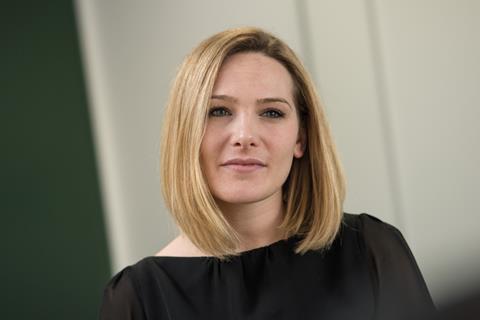
Who? Caroline Robinson, a solicitor in the public law and human rights team at Bindmans LLP, London.
Why is she in the news? Represents campaign group Women Against State Pension Inequality (WASPI), which settled judicial review proceedings in relation to a Parliamentary and Health Service Ombudsman (PHSO) investigation into complaints about government communication of changes to the state pension age. The settlement papers have been submitted to the High Court for approval.
Thoughts on the case: ‘My client has long campaigned for a just response to maladministration by the Department for Work and Pensions in relation to delayed communication to 1950s-born women of changes to women’s state pension age. I advised WASPI members to complain to the ombudsman. The ombudsman then examined six sample cases closely. While he found that the DWP did maladministratively withhold important information about the changes, he also found that none of the six suffered financial loss or lost opportunities as a consequence. The women were rightly outraged. In their judicial review claim, WASPI targeted the findings that there had been no financial injustice. [The ombudsman] will now reconsider his findings and the outcome will impact not just the six, but 3.6 million others who made similar life choices without the information the DWP should have provided.’
A PHSO spokesperson said: ‘Given the legal challenge, we have agreed to look again at part of our stage 2 report. We hope this cooperative approach will provide the quickest route to remedy for those affected and reduce the delay to the publication of our final report.’
A DWP spokesperson said: ‘The government decided over 25 years ago it was going to make the state pension age the same for men and women. Both the High Court and Court of Appeal have supported the actions of the DWP under successive governments dating back to 1995.’
Dealing with the media: ‘The legal team worked closely with WASPI, who have a highly skilled comms team, to publicise the case. We gained widespread coverage of the proceedings in local and national media.’
Why become a lawyer? ‘After graduating with a politics degree I worked as an assistant at a legal advice charity. I met an inspirational solicitor who encouraged me to undertake a law conversion course.’
Career high: ‘I secured accommodation and compensation for a disabled asylum seeker who had been in inappropriate accommodation for a year, causing a serious deterioration in his mental health.’
Career low: ‘Being unexpectedly required to address the judge in county court housing proceedings on the first day of my new training contract seat was pretty terrifying.’































No comments yet